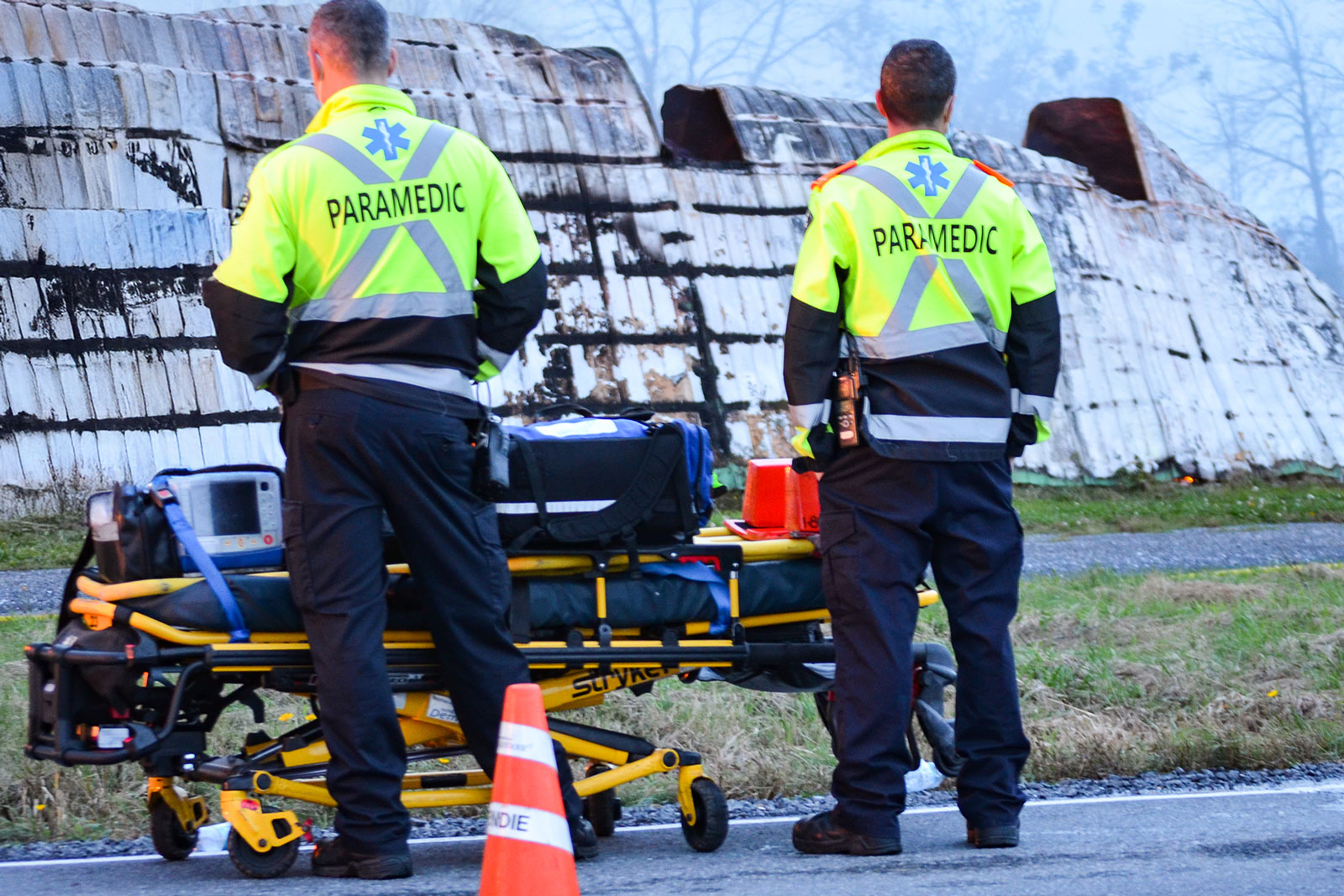Understanding Moral Injury in Public Safety Personnel (PSP)
Moral injury in public safety personnel arises when actions or events conflict with their core values, leading to guilt, shame, and emotional distress distinct from PTSD.
Moral injury is an emerging concept that describes the psychological, emotional, and spiritual harm individuals experience when they are exposed to events that conflict with their deeply held moral or ethical beliefs. For Public Safety Personnel (PSP) moral injury can occur as a result of the frequent challenges and traumatic incidents they are exposed to in their line of duty. Unlike post-traumatic stress disorder (PTSD), which often stems from direct exposure to trauma, moral injury is specifically related to the violation of personal values and moral expectations.
Moral injury is particularly prevalent in PSP, where decisions must often be made in high-stress environments with limited time and resources. In such moments, PSP may be faced with situations where the action taken or not taken is viewed as morally compromising. These experiences may lead to feelings of guilt, shame, and a profound sense of betrayal not only of their community but also of themselves. Over time, these feelings can erode the sense of meaning, pride, and identity that PSP typically derive from their roles, leading to burnout, depression, and even moral disengagement.
Moral Injury in PSPMoral injury can manifest in numerous ways for PSP. Here are some key examples of how moral injury may occur:
Facing Ethical Dilemmas: PSP may be forced to make life-or-death decisions, such as using force in situations where other options aren’t clear, or responding to emergencies where the outcome feels unjust. In these cases, moral injury occurs when the actions taken feel at odds with the responder’s moral compass, leading to feelings of guilt or remorse.
Witnessing Suffering or Injustice: When PSP witness suffering, injustice, or neglect in situations where they feel powerless to intervene or prevent harm, it can lead to profound moral distress. This is especially true in cases where systemic limitations prevent PSP from providing the level of care or protection, they believe is necessary.
Betrayal by the System: Some PSP experience moral injury not only from their personal actions but also from the organizational or institutional structures within which they work. For example, when an officer feels they are being forced to follow orders that conflict with their moral values or when they witness colleagues acting in ways that undermine their ethical beliefs, it can cause moral injury and erode trust in leadership and the system.
Personal Conflict: Moral injury often arises when PSP are unable to reconcile the personal costs of their work with the rewards or sense of duty they initially felt. This internal conflict can cause individuals to question their identity and purpose, particularly when they feel they are losing their sense of moral clarity.
Coping Strategies for Moral Injury
Acknowledging Moral Injury and Expressing Emotions
One of the first and most important steps in healing moral injury is acknowledging the injury and the emotions associated with it. Many PSP, trained to be resilient and tough, may dismiss their feelings of guilt, shame, or despair. However, it’s crucial to recognize that these feelings are valid and a natural reaction to trauma and ethical conflict. Talking about these emotions with trusted colleagues, a therapist, or a spiritual advisor can be essential for processing them. This allows individuals to understand that they are not alone and that moral injury is a shared experience for many within the profession.
Reconnecting with Core Values and Purpose
Moral injury often results from a perceived disconnection from one’s core values or a loss of the sense of purpose that initially motivated them to become a PSP. Reconnecting with the reasons they entered the profession can help PSP re-establish their sense of meaning. Reflecting on personal beliefs about service, protecting others, and making a difference in the community can help restore a sense of moral clarity. Some PSP find that revisiting their original motivations or engaging in community service outside of their usual role can help them regain a sense of moral integrity.
Seeking Professional Support and Trauma-Informed Care
Addressing moral injury requires specialized care that recognizes the unique challenges faced by PSP. Trauma-informed care, especially for those experiencing moral injury, helps individuals understand how their values may have been violated and provides strategies for healing. This may involve therapy modalities such as Cognitive Behavioral Therapy (CBT) or Cognitive Processing Therapy (CPT), Acceptance and Commitment Therapy (ACT), or Eye Movement Desensitization and Reprocessing (EMDR), which are designed to help individuals process trauma while rebuilding their moral framework.
In addition to professional therapy, peer support groups for PSP provide a critical sense of solidarity. Hearing from others who have experienced similar struggles can help reduce the stigma surrounding mental health and moral injury, allowing individuals to feel less isolated and more empowered to seek help.
Mindfulness and Self-Compassion
Mindfulness practices, such as meditation and deep breathing exercises, can help PSP manage the intense emotional responses associated with moral injury. These practices allow individuals to stay grounded in the present moment, reduce feelings of guilt or shame, and foster emotional resilience. Additionally, practicing self-compassion—understanding that no one is perfect and that PSP are often in situations where there are no ideal solutions—can help PSP come to terms with their actions and regain a sense of control over their emotions.
Additional Tips for Coping with Moral Injury
Build a Support System: Reaching out to family members, friends, and colleagues who can provide empathy and understanding is vital. Encouraging open dialogue with people who have a deep understanding of the challenges PSP face can be healing.
Recognize the Importance of Rest and Recovery: PSP are often under constant stress, which can exacerbate feelings of moral injury. Taking time to rest and recover is essential, not only for physical health but also for emotional well-being.
Set Boundaries Between Work and Personal Life: Given the emotional toll of moral injury, it is essential for PSP to establish boundaries that allow them to disengage from work when they are off duty. Engaging in hobbies, spending time with loved ones, and practicing self-care outside of work can help restore balance and prevent burnout.
Resources for Support and Further Information
Badge of Life Canada
Peer support and advocacy for first responders affected by PTSD and moral injury.
Website: www.badgeoflifecanada.org
Ontario’s First Responders Mental Health Network
A hub for mental health resources and access to mental health professionals specializing in first responder care.
Website: www.firstrespondersmentalhealthnetwork.ca
Canadian Institute for Public Safety Research and Treatment (CIPSRT)
Provides resources and research on mental health issues, including moral injury, specific to PSP.
Website: www.cipsrt-icrtsp.ca
Wounded Warriors Canada
Trauma-informed programs, peer support, and advocacy for PSP and their families.
Website: www.woundedwarriors.ca
References
Litz, B. T., et al. (2009). Moral injury and the mental health of the military veteran: The effects of trauma on moral functioning. Military Psychology, 21(2), 189-201. https://doi.org/10.1080/08995600902749199
Brenner, L. A., et al. (2017). Moral injury in veterans and active duty service members: A critical review of the literature and implications for the clinical treatment of trauma. Journal of Trauma & Dissociation, 18(3), 335-352. https://doi.org/10.1080/15299732.2016.1210254
McCreary Centre Society. (2020). The state of mental health in the first responder community: A Canadian perspective. McCreary Centre Society. https://www.mcs.bc.ca
.png)
.png)
.png)
.png)
.png)
.png)


.jfif)























